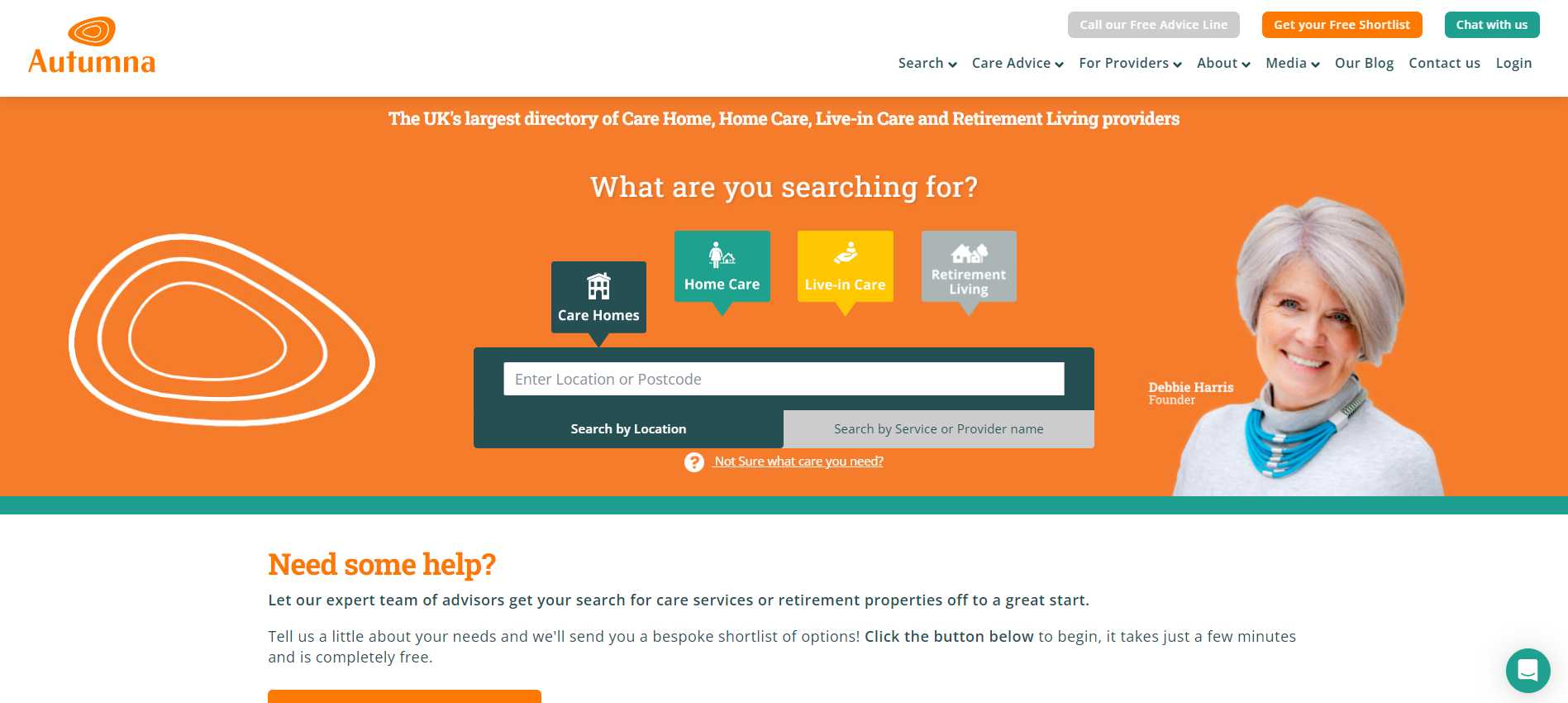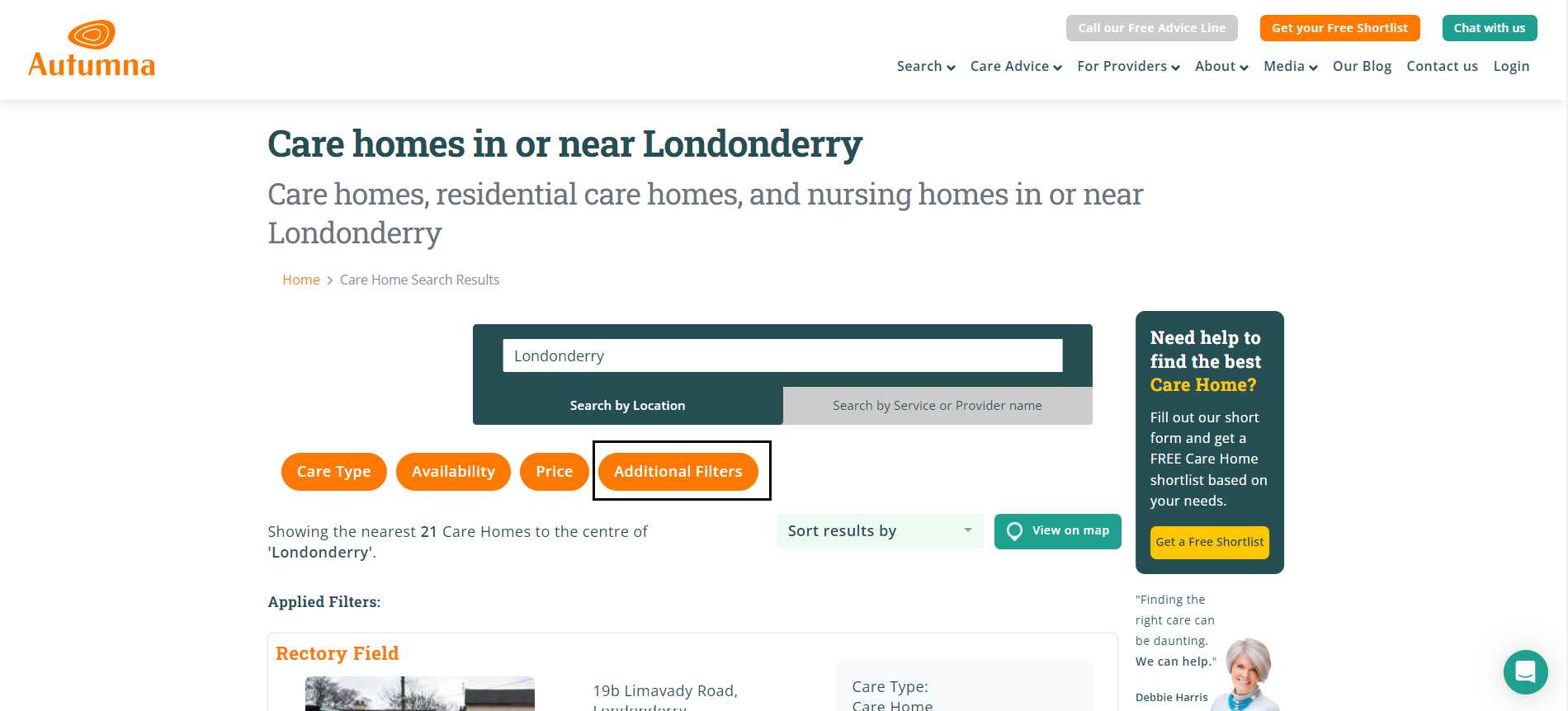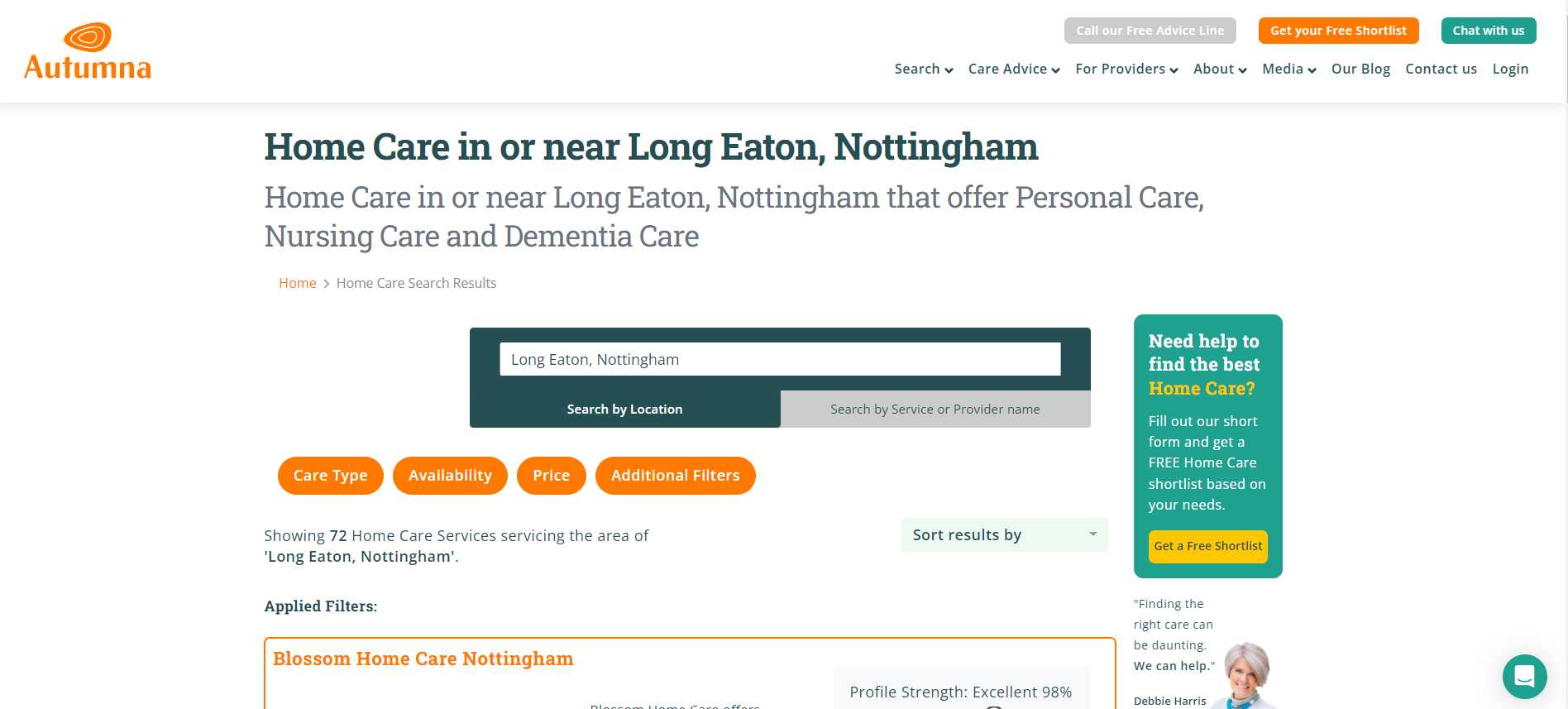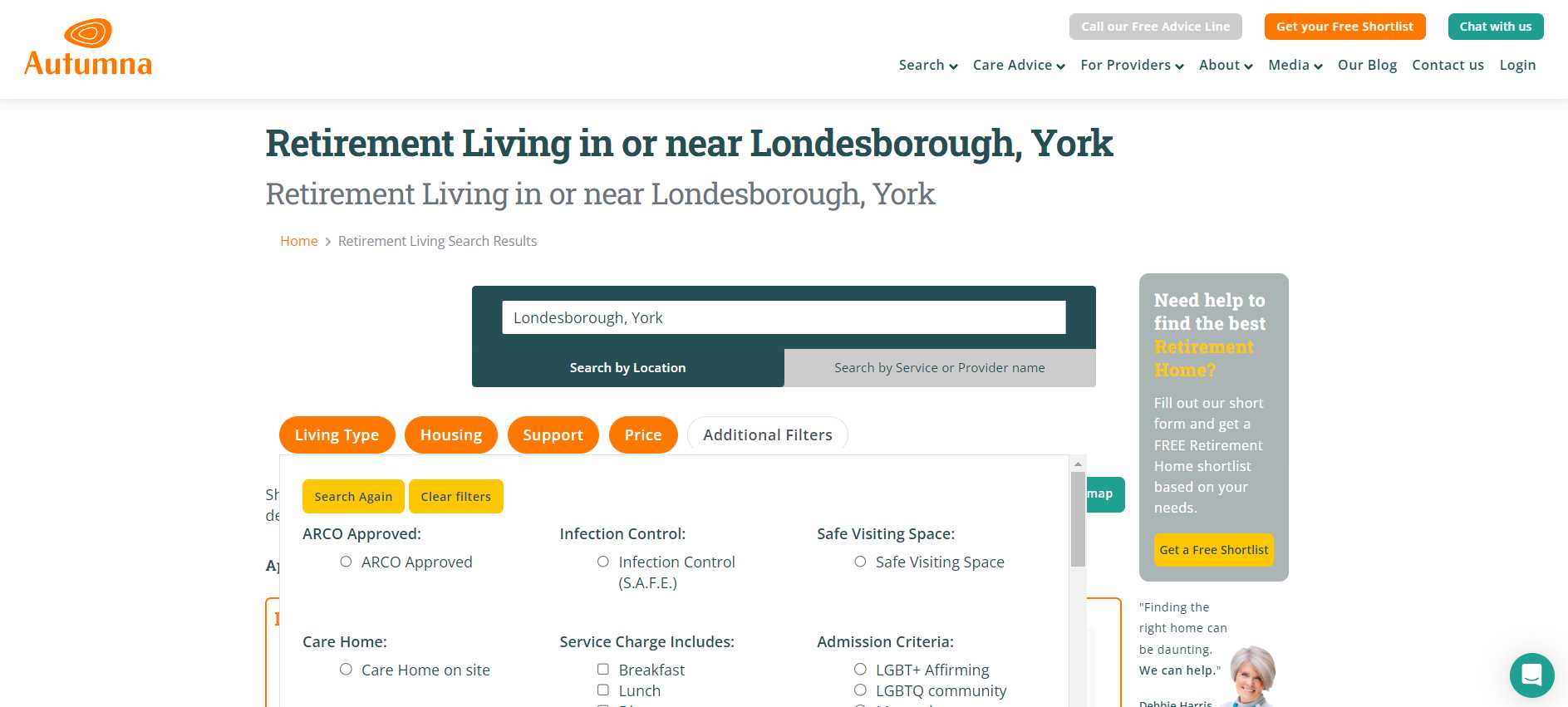Posted by Janine Griffiths
What are the main types of care homes for elderly?

The decision to move into a care home is a significant one, both emotionally and practically. Becoming familiar with the types of care homes for elderly people allows you to navigate this journey with confidence, ensuring that your loved one receives the tailored care they deserve in an environment that feels like home.
However, with so much information available, the various options can be confusing, especially if you’re unfamiliar with the care industry. Therefore, it's no surprise that choosing the right care home can feel overwhelming.
In this guide, we will break down the main types of care homes for elderly people to help you make an informed and confident decision for your loved one’s future.
What does a care home do?
A care home provides a safe, supportive environment for individuals who may need assistance with daily living tasks, offering both personal care and, in some cases, medical support.
The primary goal of a care home is to enhance the quality of life for its residents by meeting their physical, emotional, and social needs.
The individuals within these facilities may face various challenges, such as physical disabilities or mental health issues.
Although they might not need constant medical care, the dedicated staff provides daily support, including medication assistance and help with everyday tasks.
In addition to assisting with personal care, they also help ensure a good quality of life for its residents by organising activities, arranging outings and facilitating meetings between those who live in the home and their families.
However, this may vary depending on the type of care facilities. For example, a nursing home will also provide round-the-clock medical care to those with chronic conditions; while a care home specialising in dementia may have more facilities that are designed to meet the needs of people with the condition.
We discuss more about the types of care homes for elderly people in the section below.
Types of care homes for elderly people
Care homes differ widely, depending on the specialism they have. This can be a cause of confusion for some care seekers who are not familiar with the specific types of care homes for elderly people. In this section, we will attempt to demystify some of the terminology that is often used.
Care homes
A care home that does not have a specific specialism will typically only provide personal care services and help with daily tasks.
They may be responsible for helping to analyse the care plans of their residents, and tailor their services to ensure that each individual gets the best possible care while they are staying at the facility.
While many care homes may also assist residents with chronic conditions such as dementia, they typically do not offer significant medical assistance.
Nursing homes
However, unlike many care homes, a nursing home will usually provide round-the-clock medical care and support to people with significant health concerns.
They are suitable for individuals that have complex health conditions or those requiring continuous medical supervision, such as people with serious illnesses and/or disability. Nursing homes are subject to more stringent medical care standards due to the nature of the care provided. They provide a higher level of medical help than a regular care home, which focuses more on personal and daily living support. The choice between the two depends on the complexity of the resident's needs.
Care homes with dementia specialism
Care homes that specialise in dementia care are specially designed to support individuals living with various stages of dementia. They provide a safe and nurturing environment tailored to their unique needs.
These homes focus not only on personal care but also on cognitive support, while offering structured routines, dementia-friendly layouts, and activities that stimulate memory and enhance quality of life.
Staff in these homes are trained in dementia care, ensuring they understand the behaviors and challenges associated with memory loss, confusion, and anxiety. If you are looking for a care home that specialises in dementia care for your loved one, be sure to check that the staff in the care homes are trained in the specific type of dementia that they have been diagnosed with.
Respite care
Respite care offers temporary relief for caregivers by providing short-term, professional care for their loved ones in a dedicated setting. Whether it's for a few days or a few weeks, respite care allows primary caregivers to take a break, attend to personal matters, or simply rest, knowing their family member is in good hands. It also offers a period of rehabilitation after a fall.
Respite care facilities provide a safe and supportive environment where trained staff deliver personal care, social activities, and sometimes medical assistance, depending on the individual's needs.
Dual registered
Dual registered care homes are simply ones that offer both personal and nursing care. Essentially this means that if a resident initially requires only assistance with personal care but later develops more complex needs, they can continue living in the same home without needing to relocate.
Alternatives to care homes
However, sometimes the aforementioned types of care homes for elderly people are confused with other senior living options. In this section, we’ll clarify the differences by outlining the main alternatives to traditional residential care.
Retirement homes
Retirement homes are residential communities designed for older adults who are generally independent but want to live in a setting that caters to their lifestyle and needs.
These homes offer private living spaces, such as apartments or cottages, within a community that provides a range of amenities and social opportunities.
While they typically don’t offer personal or medical care, retirement homes often include conveniences like housekeeping, communal dining, transportation services, and organised activities. Unlike the types of care homes for elderly individuals that offer medical and personal care, retirement homes emphasise a vibrant, community-oriented setting for older adults who can manage most daily tasks independently. They instead focus on fostering an active, community-centered lifestyle.
Home Care
Home care is a service that allows individuals, particularly the elderly, to receive personal care and support in the comfort of their own homes.
This type of support includes assistance with daily tasks such as bathing, dressing, meal preparation, and medication management, without the need to relocate to a care facility. It’s ideal for those who want to maintain independence while receiving help in familiar surroundings.
Live-in Care
Live-in care is a more intensive form of home care, where a caregiver lives in the property full-time to provide round-the-clock support.
The main difference between the two is the level of coverage: home care can be scheduled for specific hours or tasks throughout the day, whereas live-in care offers 24/7 assistance, ensuring continuous support for individuals with more complex needs. Both options allow people to stay in their own homes while receiving tailored care.
Top tips on choosing the right care home
Choosing the right care home is essential for ensuring comfort and quality of life. Below are some of our quick tips to help you navigate the various types of care homes for elderly people and select the best option for you or your loved one.
Understand the type of care home your loved one needs
Understanding the different types of care home available will make it easier to determine which facility can meet the needs of your loved ones. Watch the video above for a brief summary of various care home options, several of which are covered in this blog.
Customise your search for the perfect care home
Autumna can make it very easy to find a care home based on your unique circumstances and needs. All you have to do is head over to our directory and select the type of care provision you need. You can then choose the area.

Once you have chosen the type of care needed and entered a location, you can filter down the search results based on your requirements, budget and availability. The 'Additional Filters' tab then lets you select more specific options.



We also have a FREE Shortlisting tool where you will be asked a few quick questions to receive a bespoke list of care providers that are tailored to your preferences.
You can also get in touch with our friendly team of advisors on 01892 335 330 for more information.
Receive a Free Care Provider Shortlist!
Let our expert team of advisers get your search off to a great start.
Tell us a little about your needs and we'll send you a bespoke shortlist of care providers! Click the button below to begin, it takes just a few minutes.
Other articles to read
From the blog

Older Persons Care Advice
How to shortlist care homes in Exeter
April 17th, 2025
Looking for an adult day care centre near you? Discover how to find safe, joyful care for your loved one—and support for yourself—on Autumna.

Older Persons Care Advice
What is Discharge to Assess?
April 16th, 2025
Discover how Discharge to Assess (D2A) supports faster recovery, reduces hospital stays, and how Autumna helps simplify finding the right care.

Older Persons Care Advice
What are the benefits of person-centred care?
April 9th, 2025
Discover the benefits of person-centred care—from improved wellbeing to better outcomes—for individuals, families, and care providers alike.
Frequently Asked Questions
Look for a care home that closely matches your requirements. For example, if you or your loved ones have significant healthcare problems, then a nursing home may be your best bet. On the other hand, if you or your loved one has a condition such as dementia, then it makes sense to consider a care home with dementia specialism. If you have had a care needs assessment from your local authority, then this will give you a clearer direction of the type of care you or your loved ones may need.
Of course, our FREE Shortlisting tool https://www.autumna.co.uk/free-shortlist/ can help you to narrow down your selection of available facilities.
Look for care homes that offer programs and activities designed to support mental and emotional well-being, such as counselling services, social activities, and support groups. Inquire about the staff’s training in providing emotional support and managing mental health issues.
Inquire about the care home’s policies, including visiting hours, any restrictions in place, and how guests are managed. Many care homes encourage family visits and have flexible visiting hours, but it’s important to understand their specific policies and any potential restrictions due to health and safety regulations.






